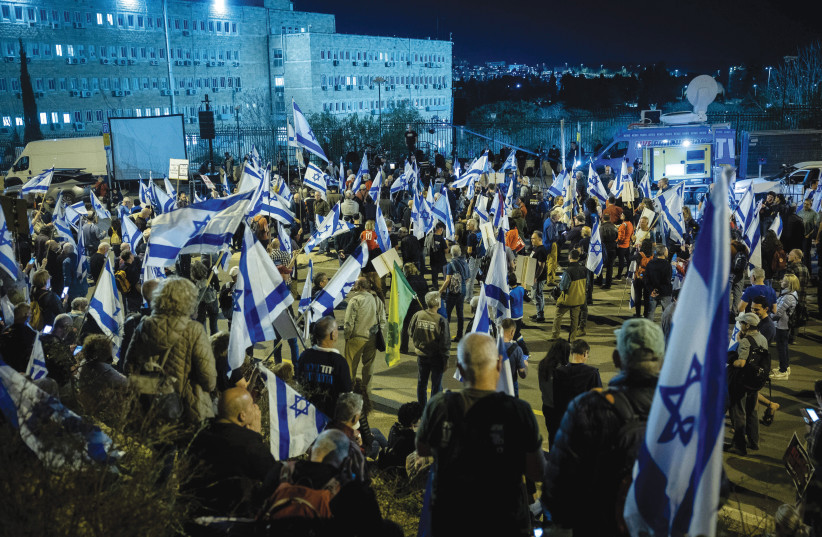Despite the Knesset’s approval of a first reading of the government’s repeal of the judiciary’s reasonableness doctrine, massive nation-wide protests and IDF reservist threat-letters that they would quit serving, as of Wednesday IDF reservists are still overwhelmingly showing up.
On Tuesday, 300 members of the IDF’s various cyber and technology arms signed a letter saying that they were no longer bluffing and that they would now refuse to show up for reserve duty when called.
However, The Jerusalem Post has learned that as of Wednesday, reservists have still not followed through on the threat.
Rather, reservists continue to show up for the IDF’s cyber and technology units in high numbers.
Likewise, regarding the air force, where a large number of reservists also threatened to pull out and top former air force officials who are beyond the age of serving publicly backed their younger colleagues, the number of those rejecting serving to date are in the single digits and still having no impact.

IDF soldiers vs. the judiciary
In terms of numbers, all of this would leave the number of reservists who have actually quit much lower than the public letters would imply.
Initially, it seemed that part of the discrepancy seemed to be that the protest leaders consider someone as refusing to serve as soon as they sign a letter, whereas the IDF now disregards letters and even disregards individual messages from a specific reservist refusing to continue to serve, unless that message comes at a specific time when they have been called up.
For example, if a reservist’s next call up is not for two weeks or two months, then the IDF will ignore their message that they have quit the reserves, and offer them their call up two weeks or two months later with the hope that the reservist will take the second chance and recant the threat.
However, additional information obtained by the Post suggests that it is not just a matter of how one counts, but that the numbers are in fact lower than the public letters suggest.
It was unclear if those persons who signed letters, but have not quit, were bluffing all along or are waiting to see whether the government repeals the reasonableness clause in a third and final reading, or takes some other measure, such as firing the Attorney-General.
Sources close to the reservist protest movement accepted the idea that reservists had not yet quit in significant numbers.
However, they were adamant that if the reasonableness standard repeal passed in its third and final reading that a large number of air force reservists would immediately quit.
The sources also said that Defense Minister Yoav Gallant is under “nuclear level pressure” about reservists quitting, which was why he came out so strongly against them in a speech on Tuesday night, saying they were "giving a prize to our enemies."
Further, sources indicated that part of why reservists had not yet quit was that there had been a series of grave operations in Gaza, Jenin, and elsewhere which were truly life and death for the state.
However, if the government’s current bill to reduce the judiciary’s powers passes and there is no major operation happening at the time, sources said the air force reservists and some in other units would follow through on their months-long threat.
Alongside the above developments, IDF Air Force Chief Maj. Gen. Tomer Bar late Monday night met with dozens of senior IDF air force reservists to try to quell or mitigate their call to avoid showing up for duty as a group.
Bar thanked them for participating in recent operations in the West Bank and Gaza, Syria and elsewhere and implored them not to publicly call for refusing duty.
Rather, he told them that he hoped they would bite their lips, feel free to protest the government out of uniform, but still all show up for duty because Israel’s enemies and its national security could never go on strike.
In addition, the air force chief requested that if anyone felt a need to reuse duty, that he do so quietly, individually and directly with his commander.
Bar did not say that refusal would be ignored, and implied there could be penalties in terms of continued service, but did suggest that especially temporary refusals handled quietly might be handled with more patience.
Despite Bar’s efforts, many of the air force reservists were said to be still very much up in arms over the government’s treatment of the judiciary.
